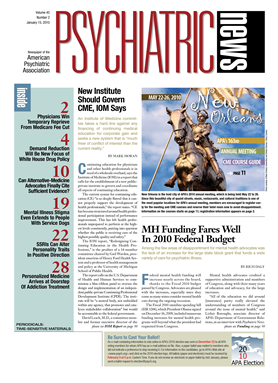Faced with Medicaid and Medicare fraud that could eventually match or exceed the cost of the massive health care reforms it is considering, Congress is weighing efforts to address the problem at the same time it is debating future expansion of those two programs. But critics view the fraud-fighting campaign as unlikely to staunch a problem that threatens to upend the federal entitlement system.
The fraud issue has drawn growing attention during the health care reform debate amid findings that fraudulent claims already account for a significant portion of federal health care spending.
Medicare and Medicaid spending was estimated to have reached at least $818 billion in 2008, according to a February 2009 Health Affairs report. Meanwhile, the federal government estimates that at least $65 billion of that spending is taken by fraud, and private researchers estimate the fraud loss as high as $100 billion in 2008. Such estimates would establish the cost of fraud as equal to, or greater than, the 10-year cost of the health care reform proposals under consideration in Congress.
Health care reform bills in Congress contain provisions that aim to strengthen the federal antifraud effort. Those provisions have been derided by some activists as inadequate to address the problem. For example, the nation's chief health care actuary estimated in November 2009 that the House health care bill (HR 3962) would cut Medicare and Medicaid fraud by $60 million annually. The antifraud provisions in the Senate bill (HR 3590) are predicted to cut only $2 billion of fraud from Medicare and Medicaid over 10 years. Both of these barely make a dent in the problem.
Some congressional critics of expanding the number of Americans eligible for federal health programs maintain that private insurers are more focused on and do a much better job of rooting out fraud, devoting a larger proportion of their administrative costs to identifying such fraud.
Antifraud Efforts Lead to Indictments
Federal prosecutors have announced a growing list of indictments and settlements for fraud under Medicare and Medicaid in recent years. A prominent example was a $22.5 million settlement by Eli Lilly and Co. over allegations it defrauded Medicaid by improperly marketing the atypical antipsychotic drug Zyprexa.
Fraud by drug makers is, however, just one category of fraud tracked by federal investigators; other key targets include fraud by clinicians, health care facilities, and medical-equipment suppliers. Antifraud activists generally believe that clinicians are the most common perpetrators of health care fraud, because they have the widest access to patient information used in submitting insurance claims.
Although numerous examples of proven fraud in each category are publicized by federal investigators, no statistics exist to illustrate how much fraud has been found in any one category, a spokesman for the Department of Health and Human Services (HHS) told Psychiatric News.
The challenge of combating fraud in federal health care programs is huge, with Medicare alone receiving 4.4 million claims each day. A new Medicare antifraud task force is able to review only 3 percent of those claims, according to congressional testimony by William Corr, deputy secretary of HHS.
Increasingly, antifraud efforts have had some success, with investigations by the HHS inspector general's office resulting in collection of $4 billion in Fiscal 2009, which was an increase from $3.2 billion in Fiscal 2008.
The Obama administration also is considering a summit that would bring together patients, physicians, insurers, and law-enforcement officials to brainstorm ways to identify and combat fraud in Medicare and Medicaid, according to Corr.
The Obama administration also looks to combat fraud through increased funding. The president's Fiscal 2010 budget would invest $311 million, or 50 percent more than the previous fiscal year, to boost antifraud efforts in Medicare and Medicaid. Those efforts would likely cut fraud in those public insurance programs by $2.7 billion over five years, according to Justice Department estimates.
Fraud-Fighting Bills Introduced
Beyond the health care bill, several legislative efforts address Medicare and Medicaid fraud.
Legislation to reduce the growing burden of fraud in Medicare and Medicaid include the Seniors and Taxpayers Obligation Protection Act (S 975), introduced by Sen. Mel Martinez (R-Fla.) last May, which would create fraud prevention and detection systems in the Centers for Medicare and Medicaid Services. The legislation aims to provide the tools and authority to prevent fraud before it starts, which is the point in the process when experts say antifraud efforts are most likely to succeed.
“While the vast majority of health care providers are honest and caring professionals, it is simply unacceptable that there still are people who are willing to scam the system and take advantage of some of our nation's most vulnerable citizens,” said Sen. Susan Collins (R-Maine), a cosponsor of the bill.
Other antifraud legislation includes a bill sponsored by Sen. Ted Kaufman (D-Del.) to lengthen prison sentences for health care fraud and give government fraud fighters $20 million more annually through 2016.
“We all know that rooting out waste, fraud, and abuse, in both government and private programs, is critical to making health care reform work,” Kaufman said, about the Health Care Fraud Enforcement Act.

